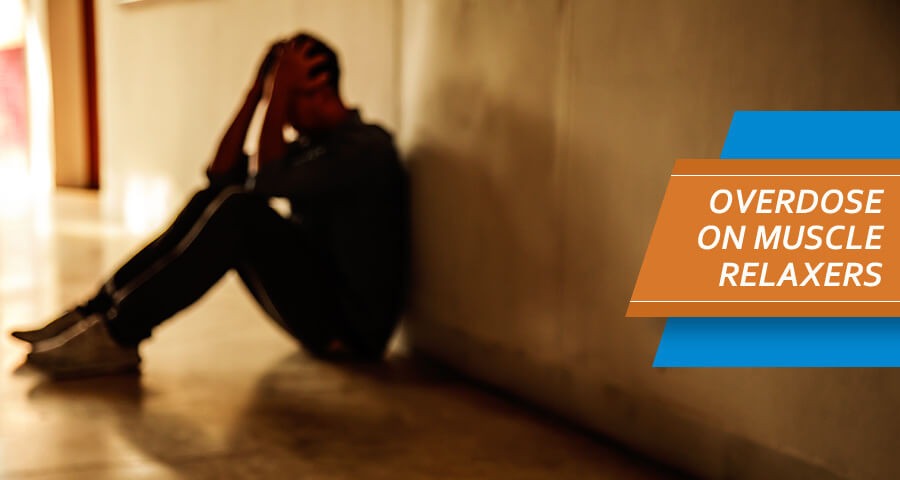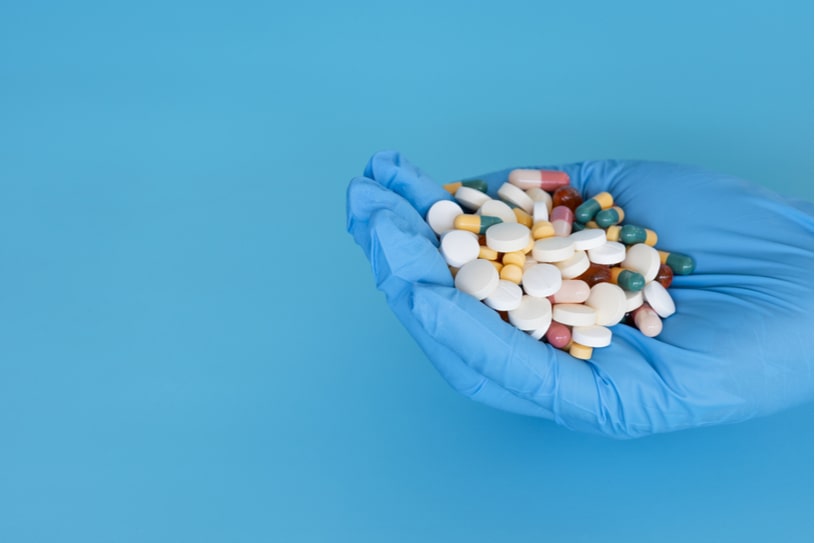
Yes, you overdose on muscle relaxers through improper use such as taking too many pills at once, ingesting them too frequently, or chewing tablets. Symptoms include respiratory depression, CNS depression, hallucinations, flushed skin, dilated pupils, lethargy, confusion, coma, seizures, hypotension, drowsiness, and rigidity. Fatal cases occur from complications like respiratory depression or seizures. Combining muscle relaxers with opioids or benzodiazepines increases overdose risk substantially. Individuals build tolerance over time, leading them to take higher doses for the same effect.
Table Of Contents:
Read on to find out can you overdose on muscle relaxers? What are muscle relaxant overdose symptoms? How many muscle relaxers does it take to od? What happens if one takes too many muscle relaxers and how to help them?
Hope Without Commitment
Find the best treatment options. Call our free and confidential helpline
Most private insurances accepted
More About Muscle Relaxants:
Signs and Symptoms of Muscle Relaxers Overdose
What happens when one uses too many prescription muscle relaxers? A person may experience both physical and psychological signs and symptoms of muscle relaxers overdose. Even though otc muscle relaxants are considered to be safer, it is vital to note that signs of an overdose vary among different types of muscle relaxers. Co-occurring side effects of muscle relaxants may also vary among medications.
Some of the muscle relaxers overdose symptoms are as following:
- Respiratory depression
- CNS depression
- Hallucinations
- Flushed skin
- Dilated pupils
- Decreased bowel sounds
- Lethargy and confusion
- Coma
- Seizures
- Hypotension
- Drowsiness or dizziness
- Rigidity
Notice that signs of an overdose vary among drugs. However, except mentioned above, sedation, confusion, slowed breathing and delirium are also known as common muscle relaxant overdose symptoms.
Causes Of Muscle Relaxers Overdose
How many muscle relaxers does it take to OD? The dosage that could lead to overdose on muscle relaxers varies considerably among drugs. For most of the drugs, ingestion of more than 3-5 times of the prescribed dose can lead to overdose. The large amounts taken within short periods of time can be fatal as well. There are numerous reasons why one can overdose on muscle relaxers, they include:
Tolerance
When muscle relaxant tablets are used regularly, the body builds a tolerance to the drug meaning one will take more of the drug to feel the same effect, which raises the risk of overdose on muscle relaxers.
Age
The elderly population is more likely to be affected by ingestion of high doses of this drug at a time because metabolism slows down as one becomes older. That’s why the elderly are more likely to overdose in smaller doses compared to younger adults.
Gender
It is known that women are more sensitive to the drug than men. Rocuronium was induced to the subjects of the study, and the men dose-response curve was shifting to the right, indicating a decrease in the sensitivity to rocuronium. As such, men tend to take more pills to feel the effect, which increases the chances of an OD on muscle relaxers.
Genetic Factors
Metabolism, alongside other factors, can influence the number of tablets one can take to make the body system feel an effect. This factor differs from person to person, so the chances are that patients who are less responsive to this substance will use more tablets at a time to overwhelm the body, increasing the likelihood of OD on muscle relaxers for them.
Combining Substances
Taking muscle relaxers and alcohol or muscle relaxers with painkillers can change the way the medication works in the body, as well as their half-life period.
Co-Occurring Disorders
Presence of other physical or mental health disorders in a patient can influence the rate of metabolism and the time muscle relaxers stay in the body. As such, these conditions can influence an OD.

Muscle Relaxers Overdose Treatment
If muscle relaxant overdose signs are noted, professional help given in time can save one’s life. If a patient is unconscious, has seizures or trouble breathing, call emergency services. To get the appropriate advice on how to administer first aid in a particular situation, it is essential to give accurate and detailed information. Do not give any other medication to the patient unless the emergency team gives permission.
Once the patient arrives at a treatment facility, the emergency management team stabilizes the patient by opening the airways, ensuring adequate ventilation, and hemodynamic state. The clinical evaluation also includes physical and laboratory examination and assessment of major toxic signs to triage the patient into one of these three categories: mild, moderate, or severe.
After clinical evaluation, the decontamination process is initiated. Decontamination methods include gastrointestinal, topical or respiratory, and each method varies depending on the route of poisoning as well as known responses of the toxic agent to decontaminants. The next step is eliminating the absorbed poison through methods such as forced diuresis, acidification, or alkalinization of the urine, hemoperfusion, dialysis, and hyperbaric oxygen.
After detoxification procedures, supportive therapy is advised. Patients taking muscle relaxers are advised to be responsible and take only the prescribed dose. Family members are to remain vigilant on how the patient is ingesting the medications, and if the dose is not sufficient anymore, the patient should visit the doctor to create a plan on how to manage the pain. Probably addition of natural homemade muscle relaxers to the schedule will solve the problem. However, if abuse or addiction to this drug takes place, it is advised to look for a rehab facility. Addiction treatment professionals will help to choose between various treatment options and provide aftercare support.
Find Drug Rehabilitation Centers Near You Anywhere In the US
Addiction Resource team has compiled an extensive list of the top drug rehabilitation facilities around the country. Use our locator tool to find the best centers near you.
Page Sources
- Robert E. Johnstone, Ronald L. Katz, Theodore H. Stanley,Homicides Using Muscle Relaxants, Opioids, and Anesthetic Drugs: Anesthesiologist Assistance in Their Investigation and Prosecution
- National Pharmaceutical Administration, Managing of Drug Overdose And Poisoning
- the U.S. Food and Drug Administration, FDA urges caution about withholding opioid addiction medications from patients taking benzodiazepines or CNS depressants: careful medication management can reduce risks


 Reviewed by:
Reviewed by:  Written by:
Written by: 


 FindTreatment.gov
FindTreatment.gov